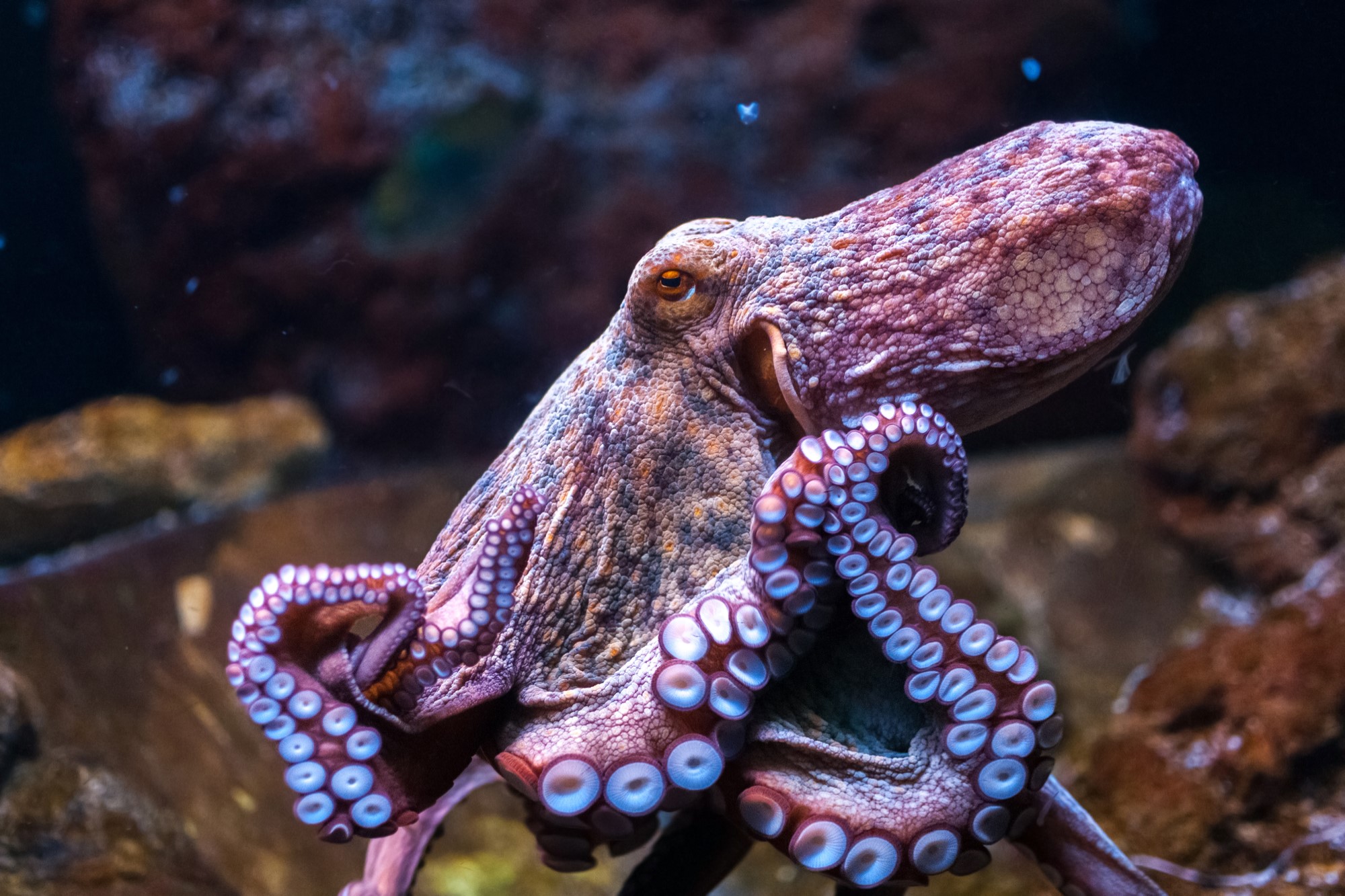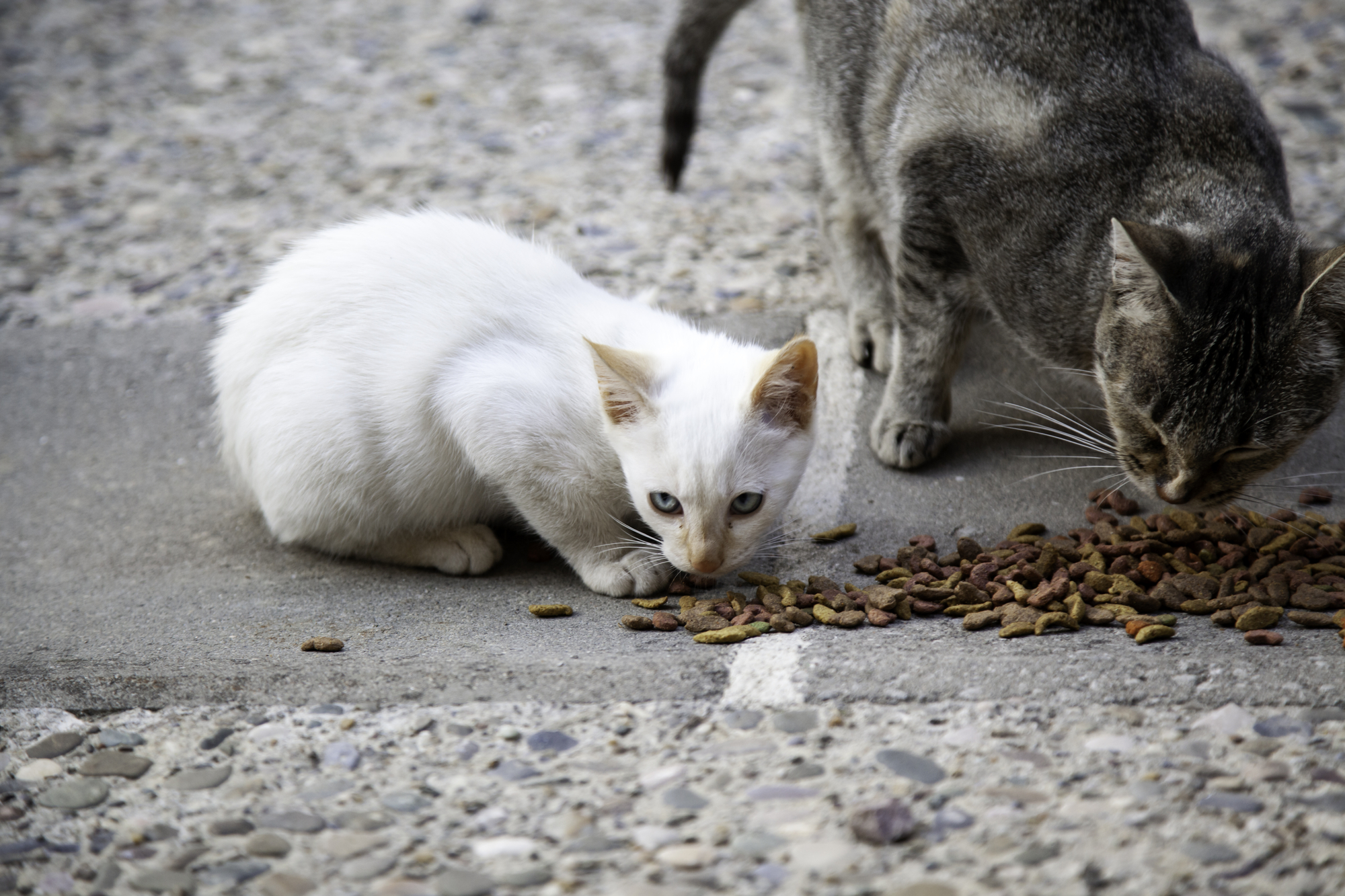Creepy-Crawlies and the Long Dreamless Sleep

In graduate school, I lived in a dingy little apartment near the sea. My apartment faced a slough, beyond which was the water. On the wall next to my door was a bright light. At first, I could turn this light on and off. But after a year or two, some men came and altered the light to make it stay on all night. The area around the light and the eave above it became a den of death. At night, droves of insects would emerge from the littoral darkness of the slough to flap and buzz in a confused frenzy around the light. Dozens of spiders awaited them. When I entered my apartment, I could see the insects wriggling pitifully in their webs.
The situation became too much for me. The spiders started to draw their webs over my door. A nasty one sprung on top of my head. I decided to take drastic action. I found a sprayable toxin for killing insects and arachnids, some horrible thing with a sickly sweet chemical smell. In the morning, when the spiders were hidden in their crevices, I sprayed the toxin all around the den and leapt back. For one second, nothing happened. And then, all at once, thirty or forty large spiders began to erratically descend, desperately clinging to threads of silk. They were writhing as the toxin destroyed them. Some of them curled as soon as they hit the ground. Others stumbled off before dying. It was horrible. I couldn’t shake the thought that those spiders, like the insects they caught in their webs, died in pain.
My colleague, Daniel Burkett, has recently written about some new empirical research which suggests that insects can experience pain. Burkett argues that if insects (or spiders, which are arachnids) can experience pain, then that pain matters morally and thus we have defeasible moral reason to avoid causing them pain.
The basic thought is that pain is inherently bad no matter where it occurs, and it’s unacceptably arbitrary to discount a creature’s pain simply because that creature isn’t a human being (or isn’t cute or friendly or lovable).
Burkett’s argument is unsettling. It implies that I may have done something terrible when I slaughtered those spiders.
I agree with Burkett’s basic argument. We have pro tanto moral reason to refrain from inflicting pain on any creature, no matter how creepy or crawly. However, I do not think (as Burkett seems to) that this means we have pro tanto moral reason to avoid swiftly killing insects, for example swatting mosquitoes or squashing lanternflies. First, I doubt that the process of swiftly swatting or squashing a creepy-crawly causes a morally significant amount of pain. Being swiftly swatted is analogous to being vaporized in an explosion. The process totally destroys the creature’s body (rendering it incapable of experiencing pain), and the destruction occurs in a fraction of a second. Second, it does not follow from the fact that we have moral reason to avoid causing a creature pain that we have moral reason to avoid painlessly killing it. And there are good reasons for thinking that painless death is not bad for insects in any morally relevant sense.
To see why, let’s take a step back and talk about why death is bad generally.
When someone dies, they permanently cease to exist. The dead are beyond any sort of experiential harm. The dead can’t suffer; the dead can’t feel distressed, sad, bored, or lonely (it’s true that the dying process can be painful, but dying things are still alive). The imperviousness of the dead to any sort of suffering raises an ancient philosophical puzzle:
why is death bad for or harmful to the dier at all? And why is painlessly killing someone wrong, apart from how this affects people other than the victim?
One popular answer is that death is bad for a dier if and because it deprives the dier of good things that the dier would have had or experienced had they not died when they did. Consider a person who is instantaneously vaporized by an explosion at forty. Suppose that this person would have lived another forty good years had she not been vaporized. The explosion is not bad for the victim because it causes her pain or distress; actually, the explosion renders her completely impervious to pain and distress. Rather, the explosion is bad for the victim because it prevents her from experiencing those good years and thereby makes it the case that there is less total good in her life than there otherwise would have been.
A related answer is that death is bad for a dier if and because it frustrates the dier’s desires and curtails the dier’s projects. Many of our desires are directed toward the future and can give us a reason to go on living. For example, I want to visit space someday. Unlike a desire to, say, get a cavity filled, this desire gives me reason to try to stay alive until I can achieve it. If I were to die in my sleep tonight, this desire would go unsatisfied. Arguably, even if I don’t feel sad about it, it’s bad for me if this desire is never fulfilled. My life is worse as a result, all else being equal. Similar things can be said, mutatis mutandis, about many ongoing projects that are cut short by death.
These explanations of death’s badness presuppose that the dier is a temporally extended subject. All living things are temporally extended in a physical and biological sense, of course. But persons are extended through time in a psychological sense, too.
My current self is connected to my past self by a continuous chain of beliefs, memories, desires, preferences, intentions, character traits, and so forth, which change over time in regular, familiar, and typically gradual ways. For example, I now have a memory of an experience my twenty-year-old self had while riding a rollercoaster. And if I live till forty, my forty-year-old self will be similarly connected to my current self. For example, my forty-year-old self might remember writing this essay. On top of this, I have desires and projects that are directed at the future. For example, I want my forty-year-old self to be happy. All this explains why it makes sense for me, now, to identify with my future self, and why it would make sense for me to feel self-interested dismay if I were to discover that I won’t make it to forty after all.
Now imagine a human being, M, whose internal mental life is completely discontinuous from day to day. M wakes up every morning with new desires, preferences, and intentions, which are all directed at the day to come. M has enough general knowledge to function in a basic way but no autobiographical memories of past days. When M goes to sleep at night, M’s mental life is erased and rebooted in the morning. Effectively, M’s mind is a series of distinct, evanescent subjects, each of which occupies a small fraction of a temporally extended biological whole.
Death would not have the same significance for M as it has for you and me. The main reason is that when M dies, this is less like cutting a person’s life short and more like preventing a new person (i.e., a new iteration of M) from coming into existence. And this makes a difference.
Morally speaking, killing a person is quite different from preventing a new person from coming into existence. Look at it from M’s perspective. If on Monday M discovers that M’s body will be vaporized in sleep on Friday night, it’s hard to see why M should, on Monday, be disturbed about this in a self-interested way. After all, M’s desires and projects are all directed at the immediate future, and the psychological subject who exists on Monday is going to disappear on Monday night in the reboot. Thus, the vaporization won’t terminate an ongoing internal life that M, on Monday, is a part of, or even one M is invested in. And for this reason, the vaporization is not going to deprive the M who exists on Monday of anything or frustrate any of M’s desires or projects. It’s as if someone else is being vaporized.
This suggests that the extent to which death is bad for a dier depends on the extent to which the dier has a complex psychological life – a psychological life that has future-directed elements and is unified over time by a continuous chain of beliefs, memories, desires, preferences, intentions, character traits, and so on.
With this insight, we are in a position to return to the issue of whether death is bad for insects, spiders, and the like.
Death is bad for creepy-crawlies only if they have temporally extended mental lives that are unified over time through reasonably thick chains of mental states like beliefs, memories, desires, preferences, intentions, and character traits.
And while some insects have the ability to remember things and execute somewhat complex tasks (bees have a relatively sophisticated spatial memory that can be used to navigate, for example), it seems overwhelmingly likely that at most very few creepy-crawlies have brains that are sophisticated enough to support such chains, much less desires and projects directed beyond the specious present that could give them a reason to continue living. In other words, creepy-crawlies probably live in the present to an even greater degree than M does. Brain size alone would seem to suggest this. Mosquito brains only have about 200,000 neurons. For comparison, human brains have 86 billion.
The upshot for our purposes is that death probably isn’t bad for creepy-crawlies, and therefore it seems doubtful that we have any pro tanto moral reason to avoid painlessly killing them (or rather any reason unrelated to the side-effects that killing them might produce). This is consistent with saying that we should not cause insects pain and that painful methods of killing creepy-crawlies, such as my sprayable toxin, are objectionable. But swatting and squashing is probably fine.
This line of reasoning is somewhat comforting to me. Scientists estimate that there are 10,000,000,000,000,000,000 insects alive at any given moment. Most of those will die very soon. Fortunately, that probably isn’t bad for them. However, like the insects in the den of death outside my old apartment and the arachnids I slaughtered, many of those insects will suffer a great deal in the dying process. The weight of that collective suffering is unfathomable. I can only hope that our tiny brethren pass swiftly into the long dreamless sleep that awaits us all.




